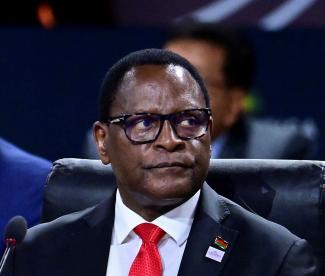Malawi
Disillusionment after elections in Malawi

Two-thirds of Malawians believe that the government is doing a poor job of fighting corruption and that corruption has increased significantly since Chakwera took office. This is the finding of a survey conducted in April 2022 by the pan-African research network “Afrobarometer”. At present, headlines are being made by the case of Zuneth Sattar, a Malawian-born businessman living in Britain. He is under investigation by the Malawi Anti-Corruption Bureau (ACB) and the British National Crime Agency (NCA) for corruption in connection with $ 150 million worth of procurement contracts for the Malawi security forces.
Speaking to the British Financial Times, ACB director-general Martha Chizuma said the case had all the hallmarks of “state capture” with systemic corruption allowing the economic elites to manipulate and control state decision-making processes to their advantage. According to an ACB report, investigations are currently underway against more than 80 senior government officials and business executives alleged to have received funds from Sattar, including Vice President Saulos Klaus Chilima. He is alleged to have received $ 280,000 from Sattar in 2021 to influence procurement transactions. Chilima was arrested in November but was immediately released on bail. He was removed from all official duties by President Chakwera, but could not be dismissed for constitutional reasons.
In general, the government does not give the impression that it wants to strengthen the ACB’s clout. This became evident most recently by the arrest and subsequent release of ACB director-general Chizuma in December. A commission of enquiry has not fully clarified the background to her arrest or who was responsible for it.
Precarious economic situation
There are positive developments in Malawi, to which the active civil society and a fairly free press contribute. However, the present economic and social situation gives no cause for optimism. Malawi remains one of the poorest countries in the world.
The International Monetary Fund (IMF) forecasts economic growth of 0.9 % in 2022, rising to 2.5 % in 2023. Considering that the population is growing at around three percent, this means a downturn in economic output per capita. Sustainable poverty reduction requires stable economic growth of six to seven percent, but Malawi’s economy lacks the structural foundation for that. The tight national budget leaves the government no fiscal space. The lack of foreign exchange has already led to shortages of petrol, medicine, fertilisers and other essential goods.
The World Bank and IMF rate the country’s debt level as unsustainable, with a high risk of debt distress. In November 2022, annualised inflation was 20 %. The upturn in food prices is currently above 30 %. Many people are thus being pushed into poverty; an estimated 3.8 million will need food aid between October 2022 and March 2023. Seventy percent of the population live in poverty. The country has also been hit economically by the Covid-19 pandemic, the war in Ukraine, tropical storm Ana and the global economic slowdown – developments that cannot be attributed to the government’s economic policy.
Need to regain trust
When President Chakwera took office, he inherited a difficult legacy and empty state coffers. The government now needs to regain voters’ trust by relentlessly rooting out corruption and implementing effective economic, financial and social policies.
It is to be hoped that international organisations and donor countries will continue to provide support – not with countless small-scale projects, but in the form of economic investment and stronger trade relations. Malawi particularly needs help in developing infrastructure and adapting to the consequences of the climate crisis, which already present considerable problems for the country. Debt relief and budget aid would be a strong signal of support.
Rolf Drescher is a freelance consultant. He lives and works in Berlin and Lilongwe.
rolf.drescher@icloud.com
Details / CV: www.linkedin.com/in/dr-rolf-drescher-bb5694117













